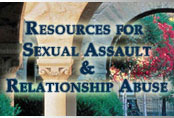Safety & Security Report

Alcohol, Drug, and Driving Laws
Applicable Laws
The following laws were taken from the California Penal Code, Business and Professions Code, and Vehicle Code:
- Any person who is found in any public place under the influence of intoxicating liquor or any drug, in such a condition that s/he is unable to exercise care for his or her own safety or the safety of others, or obstructs a public way (e.g., sidewalks, roadways) is guilty of a misdemeanor (§647 (f) PC).
- Any person under the age of 21 who has an alcoholic beverage in his or her possession in any public place or any place open to the public is guilty of a misdemeanor (§25662 (a) B&P).
- Any person who furnishes, gives, or sells any alcoholic beverage to someone under the age of 21 is guilty of a misdemeanor (§25658 (a) B&P).
- Any person under the age of 21 who has in their possession any false or fraudulent evidence of age or identity is guilty of a misdemeanor (§25661 B&P).
- Any person who is convicted of an offense for controlled substance or alcohol-related crimes may lose his or her privilege to drive (§13202.3 and §13202.5 CVC)
- Any person who participates in the manufacture of fraudulent driver's license or identification can be charged with felony forgery (§470 PC).
- It is a misdemeanor for any person to drive a vehicle under the influence of alcohol, any drug, or with a blood-alcohol content of 0.08% or greater. It is a felony to cause injury to another person while driving under the influence of alcohol or any other drug. California's "zero tolerance" law requires an immediate one year suspension of driving privileges for anyone under the age of 21 who drives with a 0.01% blood alcohol concentration or higher. Failure to submit to a preliminary alcohol screening test will also result in the suspension of one's driver's license (§23136, 23137, 23140, 23152, and 23153 CVC).
- It is a misdemeanor to ride a bicycle under the influence of alcohol, drugs, or both (§21200.5 CVC). Drivers and parents are responsible to ensure passengers and children are properly seated and wear seatbelts during transport (§27315 and §27360 CVC).
- It is an infraction to possess an open container of an alcoholic beverage while driving a motor vehicle. It is an infraction to drink an alcoholic beverage while driving a vehicle on a roadway (§23222 and §23220 CVC).
- It is an infraction to possess an open container of an alcoholic beverage while in a motor vehicle (§23223 CVC).
- It is an infraction for an owner or driver of a motor vehicle to allow an open container of alcohol in the passenger area (§23225 CVC).
- It is a misdemeanor for a person under 21 to drive a motor vehicle carrying alcohol unless his or her parent or legal guardian is present. It is a misdemeanor for a person under 21 to possess alcohol in a motor vehicle (§23224 CVC).
University Policy on Controlled Substances and Alcohol
It is the policy of Stanford University to maintain a drug-free workplace on campus. The unlawful manufacture, distribution, dispensation, possession, and/or use of controlled substances or the unlawful possession, use, or distribution of alcohol is prohibited on the Stanford campus, in the work place, or as part of any University activities. The workplace and campus are presumed to include all Stanford premises where activities of the University are conducted. Violation of this policy will result in disciplinary sanctions up to and including termination of employment or expulsion of students. Violations may also be referred to the appropriate authorities for prosecution. This policy will be reviewed at least biannually. Please see Administrative Guide Memo 26.3 for the complete University Controlled Substance and Alcohol Policy.The offices of the Dean of Students (723-2733) and Residential Education (725-2800) make available a detailed description of policies, applications, consequences of violation, criminal and civil liability, the role of residence staff, guidelines for event planners, and campus helping resources concerned with alcohol and its use on campus.
Drug and Alcohol Abuse Education Programs
The Vaden Health Center provides a variety of education programs for drug and alcohol abuse prevention. Programs include educational activities, alcohol education seminars, individual consultation and an academic course. Call the Vaden Health Center Alcohol and Drug Educator at 723-3429 for more information or go to http://vaden.stanford.edu/health_promotion/hps_alco.html for further details.Drinking and Driving
Besides the legal risks, you could be putting the lives of your friends in danger by letting them drive after drinking. If you plan on using alcohol, you should always designate a driver who will not be drinking. According to a California Highway Patrol study, a DUI conviction can cost you between $8,000 and $10,000 in storage fees, jail costs, fines, penalties, DUI education, attorney's fees and vehicle insurance increases.Drinking and Golf Carts
The same rules apply to golf carts as they do with driving a motor vehicle. The criminal sanctions may be just as severe if you are caught driving a golf cart under the influence of drugs or alcohol.Drinking and Bicycles
The California Vehicle Code (§21200.5 CVC) states that it is unlawful for any person to ride a bicycle while under the influence of alcohol or drugs -- Its similar to DUI and you can face criminal prosecution and fines. You do not need a driver's license to be arrested for biking under the influence.Vehicles: Towing Charges
Unlicensed drivers or drivers whose licenses have been suspended/revoked will have their vehicle impounded for 30 days. The registered owner will pay for all impound and storage fees. On a second offense, the vehicle may be forfeited to the state. ALWAYS CARRY YOUR DRIVER'S LICENCE WITH YOU WHEN DRIVING AND MAKE SURE THAT YOU ONLY LEND YOUR CAR TO LICENSED DRIVERS.
Lt. St Denis Shows a Community Police Academy participant how to dust for fingerprints.
© Stanford University. Stanford, California 94305. (650) 723-2300.


